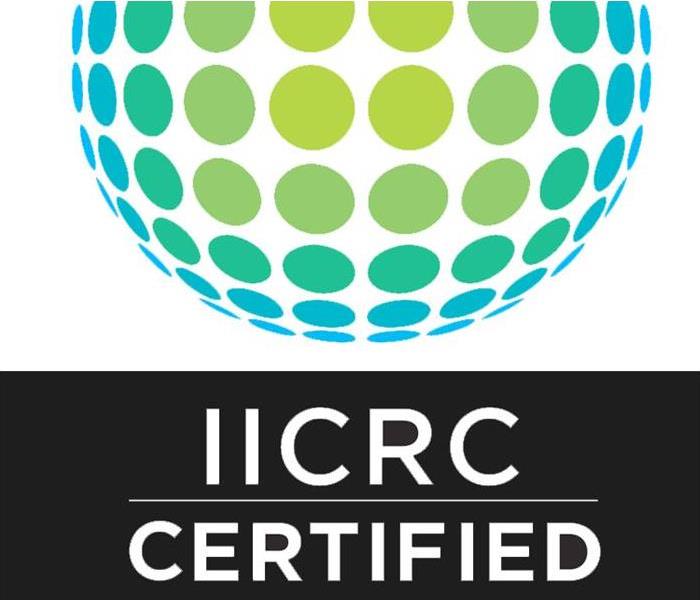SERVPRO of Southwest Waukesha is a IICRC Certified Firm.
12/9/2019 (Permalink)
 SERVPRO of Southwest Waukesha is an IICRC Certified Firm. Contact us for all your water damage needs or inquiries. 262-542-0900
SERVPRO of Southwest Waukesha is an IICRC Certified Firm. Contact us for all your water damage needs or inquiries. 262-542-0900
In the 1990s and early 2000s, restorative drying science was in its infancy but was evolving as some leaders in the restoration industry began taking a more scientific approach. Restorers were rapidly becoming restoration specialists, and in the process, they were learning what worked and what did not work. Those restorers worked to understand the science that impacted their business and developed the technology still used today.
As restorer confidence began to grow, the training needed to grow as well. The term Applied Structural Drying (ASD) became known in the industry as a drying course. The Institute of Inspection, Cleaning and Restoration Certification (IICRC) stated in its IICRC S500 V3-2006 standard, “Currently, among the IICRC’s 38,000 registered technicians, approximately 24,000 are IICRC-certified as Water Restoration Technicians (WRT), with approximately 4,500 of those being certified in Applied Structural Drying (ASD). This number is growing daily. ASD is primarily a hands-on course in which demonstration houses representative of standard residential construction are flooded, extracted, monitored, and dried throughout the three-day course – although three-day drying cannot be guaranteed.”
Everyone was going to these classes, from contractors to adjusters to property managers. The fact that a restorer could reduce the cost of rebuilding a structure substantially impacted the bottom line of the final customer, reduced cycle time, and decreased rebuild costs.
The untold truth was that even with a sanitary environment with limited contents, more than enough power and with known quantities, known saturation times, and a repeatable process, these buildings still required additional days to dry.
Some contractors and adjusters believe contractors are in possession of technology, equipment, and training that can dry structures in three days. The fact remains that these sceptics are hard pressed to substantiate their comments. Moreover, publishing erroneous materials can lead to serious conflicts between contractors and adjusters rather than assist in fair and scientifically sound practices.”
Drying Science in 2019
In 2019, the science has evolved, the equipment has evolved, and restorative techniques have dramatically improved. But with all this improvement and knowledge one thing is true – three-day drying is not the norm. Stephanie Beattie of the Center for Disaster Recovery in Barrier, Ontario stated the best statistics show we went from an average of 6.2 days in 2016 to 4.9 day in 2018.
There has been plenty of research by the restoration community and building science (engineers) community to substantiate the fact that not all materials can be dried in a specified, arbitrary time of three days. As a matter of fact, many structural materials will dry in varying degrees, depending on saturation time, atmospheric conditions and the material’s location in the building composition.
For the most part, today’s reviewers do not look at the goal of the drying project; they look at the costs of the job. The measurable cost of the job is more important than the successful drying of a project. But are those clients actually saving money? Did you help them understand the true savings?
Today, the indoor environmental profession knows more about the effects of contaminated indoor environments and the effects of mold on occupants and highly sensitized individuals. If contractors and their customers are not aware of these risks and do not address properly drying a structure, it can dramatically increase the potential for litigation and there is no limit on that liability.
SERVPRO of Southwest Waukesha is an IICRC Certified Firm. Contact us for all your water damage needs or inquiries. 262-542-0900

 24/7 Emergency Service
24/7 Emergency Service